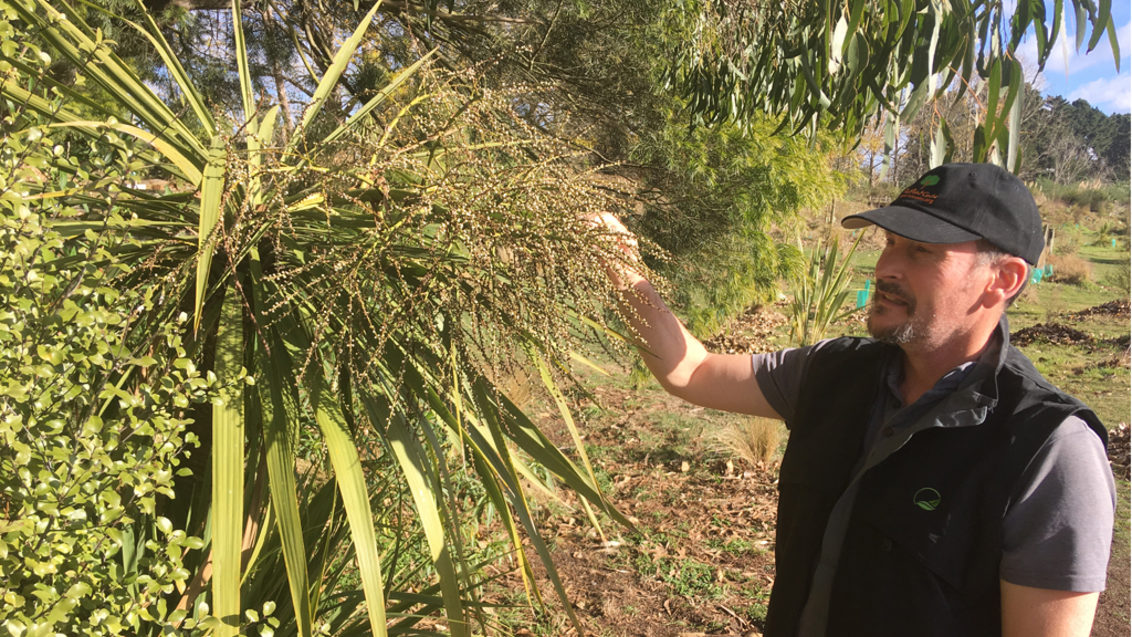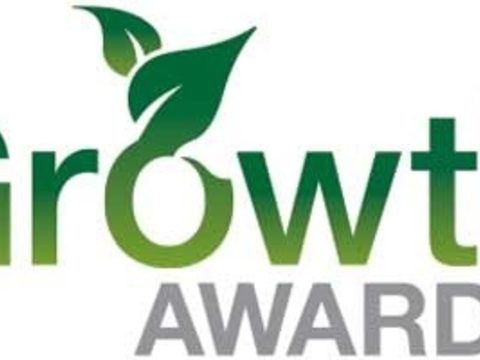Operation Pollinator commences in New Zealand

Dr Brad Howlett examining a cabbage tree
Introducing Operation Pollinator
- Pollinating insects are crucial for many natural habitats and the production of a majority of food crops
- The trend of declining native pollinating insects within crops has been attributed to the loss of feeding sites and breeding areas associated with agricultural land use intensification
- Operation Pollinator looks at strategies to increase biodiversity of insects on farms
- By devoting non-crop portions of the farm to pollinator habitat, farmers can help provide forage and food for native bees, honey bees, butterflies and other beneficial insects, while augmenting biodiversity and environmental benefits
Operation Pollinator is a global Syngenta program which aims to provide essential habitat to boost the numbers of pollinating insects and enhance overall biodiversity, improved crop yields and sustainable farming and environmental stewardship.
Syngenta has partnered with Plant & Food Research (PFR), given their long-standing knowledge and experience in pollinators, pollination biology and the impact on key economic crops such as kiwifruit and apples.
The project titled “Operation Pollinator – enhancing plant biodiversity to increase effectiveness of pollinators on commercial farms” has commenced in New Zealand with the research team from PFR looking to achieve some key milestones by the end of 2019. Leading the project from PFR is Nicolas Bordes, with Jason Trethewey managing it for Syngenta.
Dr Brad Howlett from the New Zealand Institute for Plant & Food Research explains that the partnership with Syngenta will take advantage of knowledge gained during the research to identify associations between plant species and insects to design specific on-farm plant habitats, to promote populations of known beneficial insects while minimising populations of pest species.
Dr Howlett says: “Our findings show that many exotic plants have associations with pest species and in contrast many of our native plant species have not been shown to be significant hosts of the more damaging insect pests but rather are being utilised by beneficial insects, including pollinators.”
Blake Mackie, Syngenta New Zealand, noted that independent research trials have shown that the creation of even small areas of dedicated habitat can significantly increase the numbers of pollinating insects, which is important for many reasons.
“Understanding which native plant species to choose and providing direction into establishing these species on suitable non-farming land will be a key outcome of the initial project,” says Mr Mackie.
To date, the research team has compiled lists of key beneficial insects and pest species of various crops and done in-depth analysis of existing information to identify associations with these species and native plants.
Going forward, two kiwifruit orchards will be identified as sites for establishing native plantations nearby. Prior to establishment, the sites will be assessed for the presence of pollinators and beneficial insects, using observation, hand collected specimens, and window trap surveys. Insect diversity will be sampled every quarter, following the establishment of plantations across consecutive years.
Ongoing monitoring will determine the effect of established habitats on the relative abundance of pollinators and crop yield.
For more information, contact Brad Howlett at: brad.howlett@plantandfood.co.nz or Jason Trethewey at: jason.trethewey@syngenta.com


